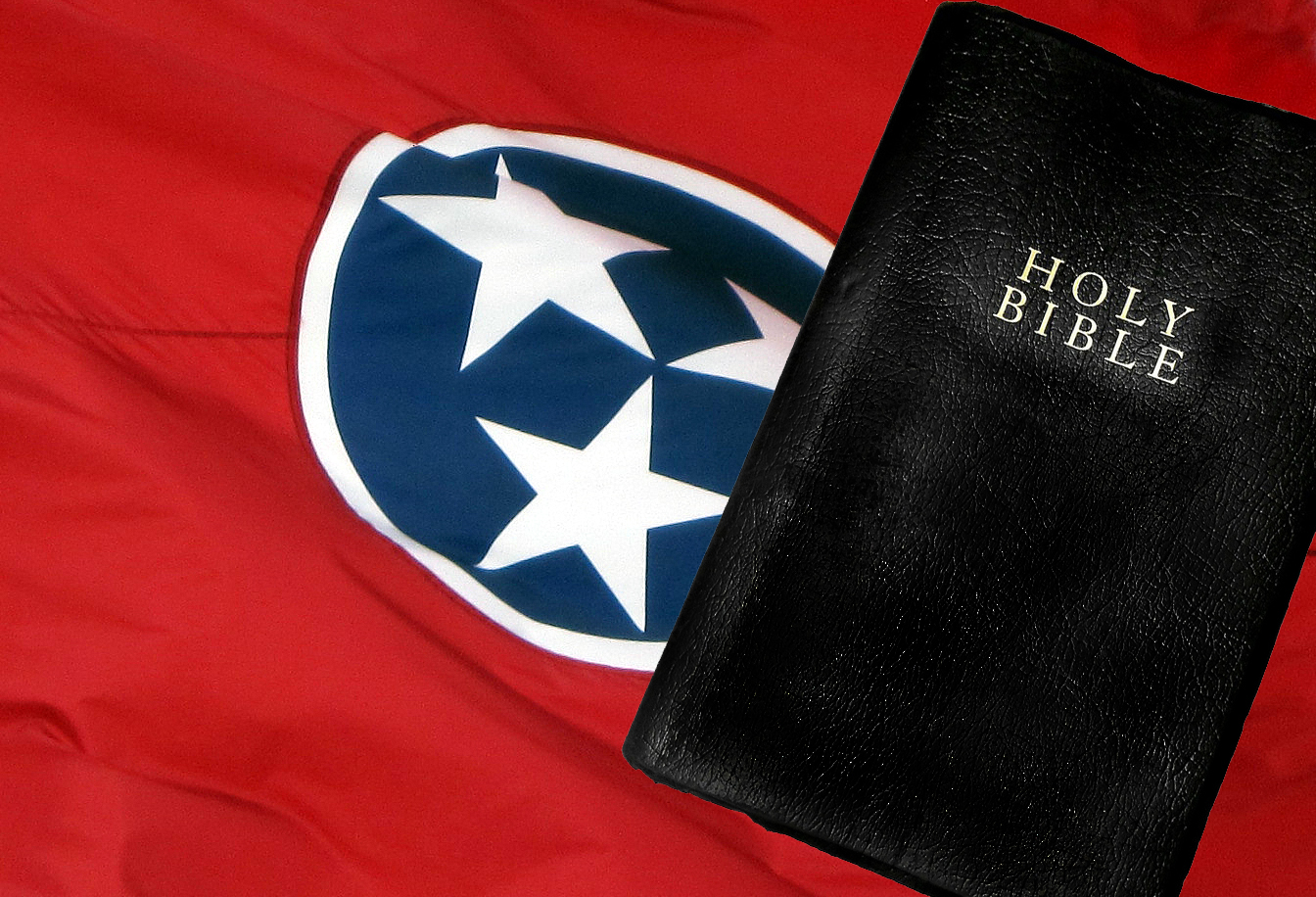
NASHVILLE (BP) — The Bible will not become the official state book of Tennessee — at least not this year.
The Tennessee Senate voted 22-9 to send the Bible bill to committee April 16, effectively killing the measure after it had passed the House of Representatives the previous day by a 55-38 margin.
 The bill was introduced earlier this year by Rep. Jerry Sexton, a first-term Republican from Bean Station, and Sen. Steve Southerland, a 13-year Republican veteran from Morristown and deputy speaker of the Senate for four years.
The bill was introduced earlier this year by Rep. Jerry Sexton, a first-term Republican from Bean Station, and Sen. Steve Southerland, a 13-year Republican veteran from Morristown and deputy speaker of the Senate for four years.
The bill proposed that, “The Holy Bible is hereby designated as the official state book.”
From the outset, the bill’s supporters faced a number of detractors. While Sexton and Southerland said making the Bible the official book of Tennessee simply acknowledges the Bible’s role in Tennessee history, both past and present, opponents — including Republican Gov. Bill Haslam — said it violated the Tennessee constitution and the First Amendment of the U.S. Constitution.
Attorney General Herbert Slatery III issued a four-page legal opinion April 13 declaring that the bill violates both the state and federal constitutions.
Sexton, in an interview with the Tennessee Baptist and Reflector earlier this year, had anticipated such opposition. “Making the Bible our official state book isn’t a violation of either our [Tennessee constitution] or the U.S. Constitution. … To preclude the Bible simply because it is religious in nature is anathema to the First Amendment.”
Such a designation “doesn’t require that people read it any more than making ‘The Tennessee Waltz’ the state song would require people to sing it,” Sexton said. “It is about recognizing the Bible’s historical role in Tennessee, and that history is undeniable.”
When both the state and federal constitutions are examined line by line, Sexton said, “You’d be able to see that in making the Bible our official state book, it in no way violates either document. It doesn’t violate anyone’s conscience to believe in — or not to believe in — God the way they choose, it doesn’t compel anyone to attend or support any place of worship, it doesn’t establish any religion or provide any preference to religion, and it isn’t being set forth as a requirement for qualification for any state office.”
Slattery, however, stated in his legal opinion, “Legislative designation of The Holy Bible as the official book — as an official symbol — of the State of Tennessee, when viewed objectively, must presumptively be understood as an endorsement of religion and of a particular religion.
“Irrespective of the legislation’s actual purpose, common sense compels the conclusion that designation of the Bible as the official state book in practice and effect conveys a message of endorsement,” Slattery wrote. “Such an endorsement violates the Establishment Clause of the federal Constitution, regardless of whether the message of endorsement is intentional or unintentional and regardless of whether the message is conveyed in reality or only in the public perception.”
Noting the Tennessee constitution’s stipulation states that “no preference shall ever be given, by law, to any religious establishment or mode of worship,” Slattery described it as “substantially stronger than the federal protection against government endorsement of religion or of a religion.”
Southerland spoke from the Senate floor, becoming emotional at times, in support of the bill, The Tennessean newspaper reported. “The Bible,” he noted, “has great historical and cultural significance in the state of Tennessee.”
Senate Majority Leader Mark Norris, R.-Collierville, led the effort to stop the bill in the Senate, according to the newspaper.
Lt. Gov. Ron Ramsey, R.-Blountville, opposed the legislation, saying it belittles the Bible by placing it next to state symbols, The Tennessean reported.
“I am a Christian, but I am also a constitutionalist and a conservative,” Ramsey said in a statement as reported in the newspaper. “It would be fiscally irresponsible to put the state in a position to have to spend tax dollars defending a largely symbolic piece of legislation. We don’t need to put the Bible besides salamanders, tulip poplars and ‘Rocky Top’ … to appreciate its importance to our state.”
According to both the Associated Press and The Tennessean, referring the bill to committee allows supporters to pick up the campaign again next year.
Southerland told The Tennessean he had picked up three votes from senators who were not co-sponsors, “so we’ll see next year.”
A similar bill in Mississippi died in committee, according to information at the state website. Republican Rep. William Arnold, senior pastor of The Vineyard Church in Booneville, had proposed the bill. The legislation also was introduced in the state Senate.















